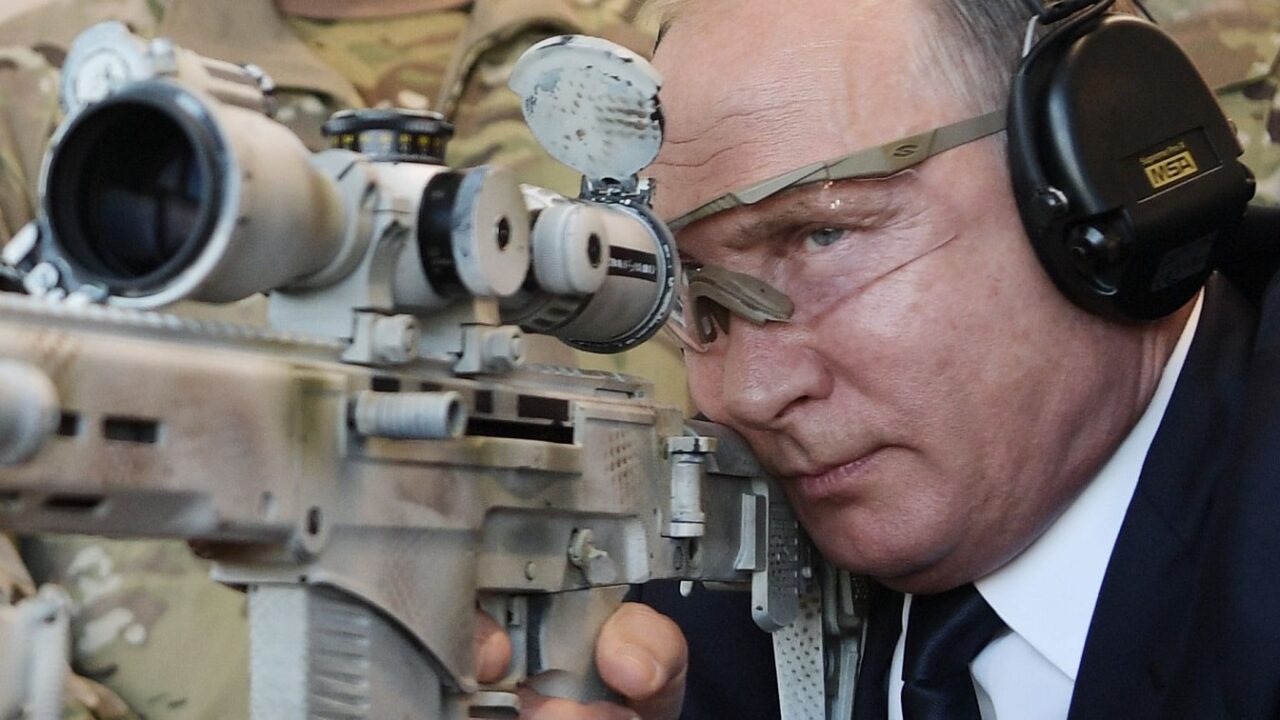Speaking to The Times newspaper, Ukrainian presidential adviser Oleksiy Arestovich described how Russian President Vladimir Putin is living in fear for his life, knowing that there is “no forgiveness for tsars who lose wars.”
The Ukrainian official even revealed how loyal military leaders have begun to doubt Putin, as well as his ability to win the war, following the embarrassing withdrawal from Kherson city earlier this month.
Putin’s future might be uncertain, but there are some who say that even in the face of a humiliating loss and an admission of defeat, the Russian president may be forgiven.
End Of Putin’s Political Career?
Some argue that losing the war in Ukraine would end Putin’s political career and presidency, given the damage done to the Russian economy and the country’s standing in the world. Arestovich appears to be one of them.
“He is fighting for his life now. If he loses the war, at least in the minds of the Russians, it means the end,” Arestovich said. “The end of him as a political figure.”
Putin is already facing pressure domestically over the Russian military’s many failures in Ukraine, including from Ramzan Kadyrov, the leader of the Chechen Republic and a long-time ally of the Russian president. On October 1, Kadyrov published a long and scathing criticism of the Russian president, his tactics, and his military leaders.
“I do not know what the Ministry of Defense of the Russian Federation reports to the Supreme Commander-in-Chief, but in my personal opinion, more drastic measures should be taken, up to the declaration of martial law in the border territories and the use of low-power nuclear weapons,” Kadyrov said, effectively suggesting the Russian president’s threats of nuclear conflict were not sufficient.
“It is not necessary to make every decision with an eye on the Western American community – it has said and done a lot against us.”
The statement was also backed by Yevgeny Prigozhin, the leader of the Wagner Group private paramilitary organization, who responded to the message by describing Kadyrov as a “star.”
Facing this kind of pressure, Putin knows that he must keep fighting the war in Ukraine not just to avoid embarrassment, but to save his political career and potentially, as Arestovich suggests, his life.
But not everybody agrees.
Could Putin Be Forgiven?
Speaking to NPR, former U.S. ambassador to Russia Michael McFaul suggested that “conventional wisdom” shows that Putin “can’t accept defeat.”
“He will double down, he’ll fight to the end, he might even use nuclear weapons,” McFaul said, before suggesting that the Russian people – as well as world leaders – may actually be supportive of Putin if he decides to end the war.
Instead of bringing an end to Putin’s presidency, McFaul argued that many ambivalent Russians, who are tired of the war, would like to see Putin admit defeat.
“Tragically — and I say this, I want to emphasize that word tragically — if he did say, ‘OK, I’m done. Let me have Donbas and Crimea, the places I was basically controlling before he invaded again in February,’ I think there’ll be a lot of leaders around the world that might support him,” McFaul said, adding that the “vast majority” of Russians are “apolitical” and would rather hear Putin say that Russian men do not need to die for this war.
It’s hard to know who’s right about what would happen if Putin admitted defeat, but few would argue that Putin is likely to do it.
Jack Buckby is 19FortyFive’s Breaking News Editor.

